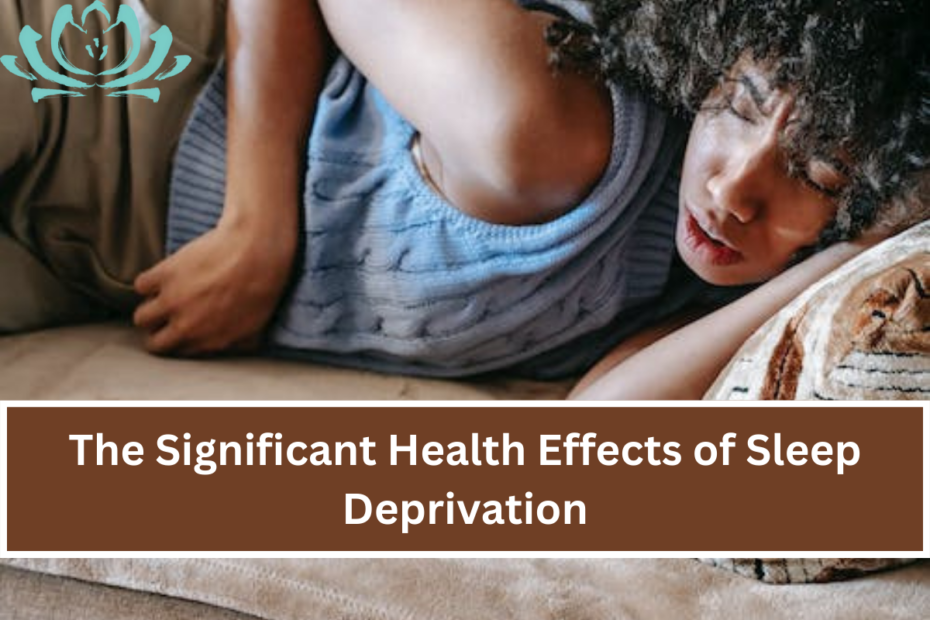The Significant Health Effects of Sleep Deprivation:- Everyone knows what it feels like to be sleep-deprived—your thinking is hazy, minor things upset you more, and you may look or feel unwell. Sleep deprivation harms your body and mind. Sleep deprivation affects memory, weight, and sex! The CDC has designated sleep deprivation a public health problem since most Americans lack it. Your body and mind need time to recharge in a busy world.
The Significant Health Effects of Sleep Deprivation
Weight Gain
- Sleep deprivation increases hunger and decreases appetite hormones, which is undesirable. A 2004 study found that those who slept less than six hours a day were almost 30% more likely to become obese than those who slept seven to nine hours.
- Sleep deprivation increases desires for high-fat, carbohydrate-heavy diets, hence many studies recommend including healthy, adequate sleep in first-line weight control programmes.
Heart Disease
- Chronic sleep deprivation can impair cortisol regulation. Increased cortisol levels may raise blood pressure, which can cause many issues, including heart disease. Chronic sleep loss greatly raises the risk of heart disease, the leading cause of mortality in the US for men and women.
Diabetes
- Sleep deprivation reduces insulin release after meals. This produces a vicious loop by increasing cortisol, which keeps you awake and hinders insulin function. Too much glucose in the bloodstream indicates Type 2 diabetes. Chronic sleep loss significantly triples Type 2 diabetes risk.
- More precisely, persons who sleep four to six and a half hours each night have less deep sleep, which is the most restorative stage and regulates insulin sensitivity and blood sugar.
Lowered Immunity
- Sleep and the immune system have long been linked by academics and neurologists.
- Without enough sleep, the body produces less cytokines, which fight infection and inflammation and activate the immune system. One of the most well-known sleep deprivation outcomes.
Also Read:-10 Healthy Super foods to Eat Every Day

The Significant Health Effects of Sleep Deprivation
Premature Aging of Skin
- Anyone who has studied all night or stayed up with a fussy baby knows that missing sleep may create dark circles under the eyes and sallow skin. But chronic sleep deprivation has a more physiological effect on the skin.
- Lack of sleep increases cortisol, which raises blood pressure and breaks down skin collagen. Collagen helps skin stretch and expand while retaining a young appearance. When stretched, collagen-eroded skin becomes loose and wrinkled.
- “It’s during sleep that growth hormone is released,” says University of Pennsylvania Behavioural Sleep Programme clinical director Phil Gehrman, PhD. It appears to be typical tissue repair—patching daily wear and strain.
Reduced Sex Drive
- Finally, sleep deprivation lowers men’s and women’s libidos and sex interest. The brain suppresses oestrogen and testosterone in favour of cortisol when sleeplessness causes stress.
- Infertility, erectile problems, and reduced sex drive come from this hormone change. Poor libido can also cause insomnia, creating a loop. Oxytocin, released during sex, relaxes your brain and signals sleep.
Poor Judgement
- Sleep deprivation simply makes you foolish. Healthy sleep is essential for brain plasticity, or input adaptation. Sleep deprivation makes it harder to understand and recall what we’ve learnt. One thing we can’t seem to learn is how sleep deprivation affects us.
- “Studies show that people who get six hours of sleep instead of seven or eight feel they’ve adapted to it and are ‘used to it.’ They continue to decline with mental alertness and cognitive testing.
Irritability, Anxiety, and Depression
- Sleep deprivation can worsen depression over time. A 2007 study found that insomniacs were five times more likely to develop depression. Sleep loss exacerbates depression’s other symptoms, which commonly start with insomnia.
- For one week, University of Pennsylvania researchers found those with four and a half hours of sleep felt more worried, furious, depressed, and intellectually fatigued.
- They reported major mood improvements after returning to normal sleep schedules. New academic research and direct links to mental and physical health remedies show that sleep deprivation affects the brain.
If you like this article about The Significant Health Effects of Sleep Deprivation Please share this article with your friends and family members.

